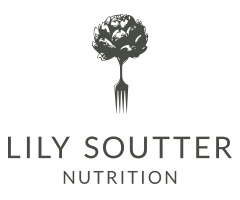‘Sugar Is As Addictive As Cocaine’ and ‘Sugar Addiction Is Just Like Drug Abuse’ are just some of the scary headlines that have been thrown over the last few years. In fact, everywhere you turn someone seems to be talking about ‘sugar addiction’.
Let’s face it, if you’ve struggled to restrain yourself from polishing off your Easter eggs then you’re not alone. But does this make you a sugar addict?
Sugar can stimulate the release of a neurotransmitter called dopamine which is responsible for the ‘reward’ response. It basically makes us feel good, which can make us want to stimulate that system again.
Interestingly, drug abuse also stimulate the dopamine system which is why the notion of sugar being addictive is highly convincing. Whilst the sugar addiction concept is extremely compelling, there are a number of reasons to exercise caution in this notion…
1. The dopamine response is different to drugs
Sugar, like drugs does trigger the release of dopamine, which could underlie its profound reinforcing qualities. However there is a key difference, the repeated exposure to drugs can lead to tolerance. This basically means that that that you need more and more of that drug in order to get the same effect. But unlike drugs, dopamine release quickly returns to its original levels after repeated administration of sugar 1.
It’s also important to remember that whilst sugar triggers the dopamine response, so do things like winning, hugging someone, having a lovely hot shower, a gift that that you really like, exercising and even listening to highly pleasurable music.
2. Much of the research around sugar addiction has been done on animals, humans are different!
The theory that sugar is addictive is largely based on evidence from feeding studies conducted in rats. One commonly cited study looked into giving laboratory rats a choice between normal rat food and sugared water. The rats would binge on the sugared water and there was an increase in dopamine levels in response to this sugared water – just like in a cocaine addiction.
However it’s important to note that these findings cannot be directly applied to the eating patterns of humans, which are much more complex than those of most animals. In fact, the results of the limited human studies are largely conflicting.
3. Addiction-like behaviours may be down to food restriction and deprivation
These rat studies showed that addiction and binge-like behaviours occurred when the rats were exposed to sugar solutions after a long periods of food deprivation. However if you allowed them to have sugar whenever they want it – which is really how we consume it – the addictive properties vanish 2 + 3.
Any type of excessive food restriction may result in bingeing, therefore it’s difficult to confirm if the rat were seeking sugar due to hunger or a genuine ‘withdrawal’.
4. We rarely consume sugar in isolation
When do you ever see people spooning sugar into their mouths? We rarely consume sugar in isolation, and it is usually a combination of sugar and fat such as chocolate that have the hyper-palatable qualities.
If someone was really addicted, wouldn’t a banana or neat sugar have the same satisfying and moreish properties as a piece of cake?
What does this mean for us?
The current research as it stands is not strong enough to back up the claims that state that sugar is an addictive substance 4. In fact, it’s pretty normal to like sweet and chocolate, they are both highly palatable and rewarding foods. When something tastes good it can be hard to stop.
Saying this, as a population we could all do with less sugar within the diet. But is the answer really to label ourselves as ‘sugar addicts’? Following a complete abstinence diet or buying into ‘sugar detoxes’ may backfire. It’s psychologically proven that humans may crave or binge on foods they are totally ‘forbidden’ from having.
Rather than labelling sugar as the addictive substance, it’s also important to look at other possible underlying factors that can be addressed with psychological or nutritional guidance. Relying on food to manage emotions, binge eating disorder or even an ‘eating addiction’ are all potential areas which should be taken into consideration.
Lastly if you haven’t yet heard of intuitive or mindful eating, do so now! This tool is a great way to change our mindset around hyper-palatable food such as chocolate, and can minimise those feelings of loss of control and compulsions to overeat.
References
- https://www.infona.pl/resource/bwmeta1.element.elsevier-262d2c27-b70a-3ff1-94a0-49f135ffda0a
- https://www.researchgate.net/publication/6221358_Evidence_for_sugar_addiction_Behavioral_and_neurochemical_effects_of_intermittent_excessive_sugar_intake + https://www.ncbi.nlm.nih.gov/pmc/articles/PMC2235907/
- https://www.ncbi.nlm.nih.gov/pmc/articles/PMC5174153/
- https://link.springer.com/article/10.1007/s00394-016-1229-6
About Lily
Lily is a London Nutritionist who graduated from Newcastle University with a BSc (Hons) degree in Food and Human Nutrition (AfN accredited) where she was awarded with the Sage Faculty for Excellence Scholarship on an annual basis. She then went on to complete a 2 year post graduate Diploma in Nutritional Therapy and is currently working towards her MSc in Nutritional Medicine (AfN accredited) at the University of Surrey. Lily’s extensive knowledge of the science of food and health, enables her to regularly write for The Times, The Telegraph, The Daily Mail, The Independent, Women’s Health and Cosmopolitan.
Her frequent TV appearances include ITV’s This Morning with Holly Willoughby and Phillip Schofield, and ITV’s prime time series Save Money: Lose Weight with Dr Ranj Singh. Lily’s passion is to simplify the science around nutrition, to provide health hacks and smarter eating strategies to empower people to enjoy a healthy and successful lifestyle. Her specialities lie in workplace wellness, implementing nutrition focused wellbeing programmes within corporate organisations across the UK.
Lily also sees individual clients from her clinic in Chelsea and a private medical practice based in Notting Hill.



